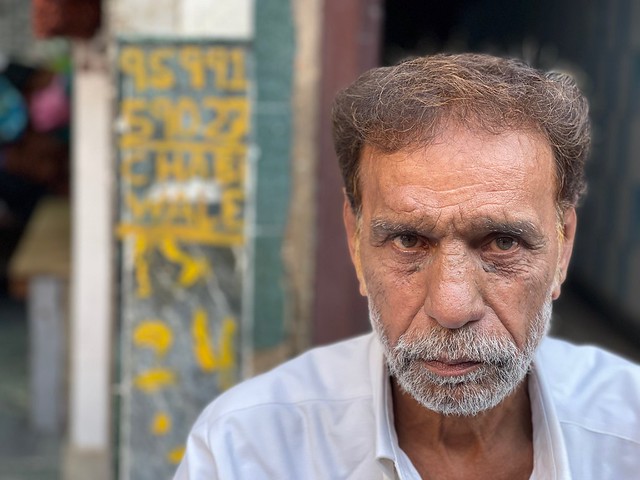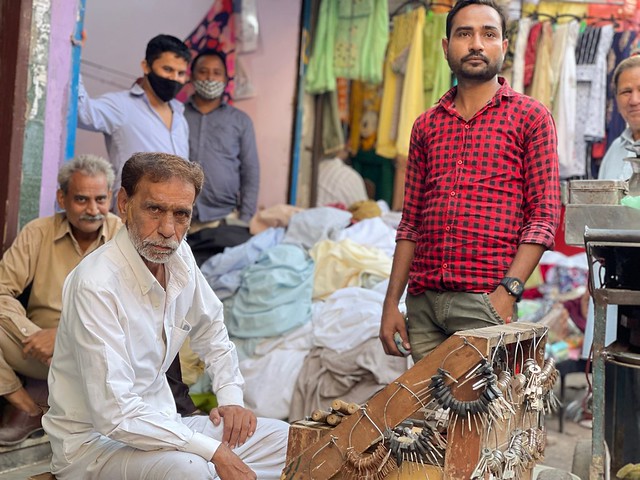
City Landmark – Muhammad Ateek Chawbiwale, Tiraha Behram Khan

The key man.
[Text and photos by Mayank Austen Soofi]
It’s like discovering all the passwords of your online existence copy-pasted into a stranger’s laptop. Such is the alarm one feels on coming face-to-face with hundreds of keys hanging in several bunches, from a series of nails rammed into a low wooden block.
The Old Delhi pavement stall of the so-named Chabi Wale specialises in making keys, or chabi, for various kinds of big and small locks. The Chabi Wale’s mobile phone number is scrawled all over the stall’s wooden booth, including on the wall behind him. On receiving a call, the Chabi Wale walks over to the customer’s gali or kucha, surveys the lock, and makes a replica of the lost key on the spot. Customers also occasionally walk to the stall to get “duplicate chabi” made.
The establishment has been in Tiraha Behram Khan for more than 40 years. The founder is sitting in a spotlessly white kurta and white lungi; his beard is also white. In his 60s, Muhammad Ateek feels his occupation will never be threatened by recent innovations in automated locking. Even though at least one house in the Walled City—near Pataudi Chowk—has replaced the familiar tala-and-chabi with an electrical lock based on programmed codes. “Fancy chochle (blandishment) cannot replace the chabi,” the Chabi Wale declares, expressing confidence that his son will keep the stall alive.
This afternoon the bazaar is crowded with shoppers, and the street looks like a blur from the Chabi Wale’s chair. The counter on his booth is filled with a variety of handy tools. Son, Salman, identifies each with its name—“reti, sansi, hathori, pechkas, plaas, chenni, batta…”
While the young man has obediently taken up his father’s occupation, the elderly Chabi Wale rebelled against his father. “He sold fruit, I didn’t like doing that work.” He was intrigued by a friend, who was working as a Chabi Wale in Chawri Bazar. “I learnt key making from him and set up my shop on this same spot.” The stall is located outside Masjid Bar Wali—the mosque’s bar tree no longer exists. Neither does the Chabi Wale’s ancestral home behind the mosque, on Gali Rohilla. “We now live outside Old Delhi, in Minto Road… it’s less noisy there.”
No customer has appeared during the course of this conversation. The mobile phone has also remained silent. The venerable Chabi Wale shows no anxiety. He knows that somebody sooner or later is bound to lose a key.
Key maker’s portrait
1.
2.
3.
4.
5.
6.







Recent Comments